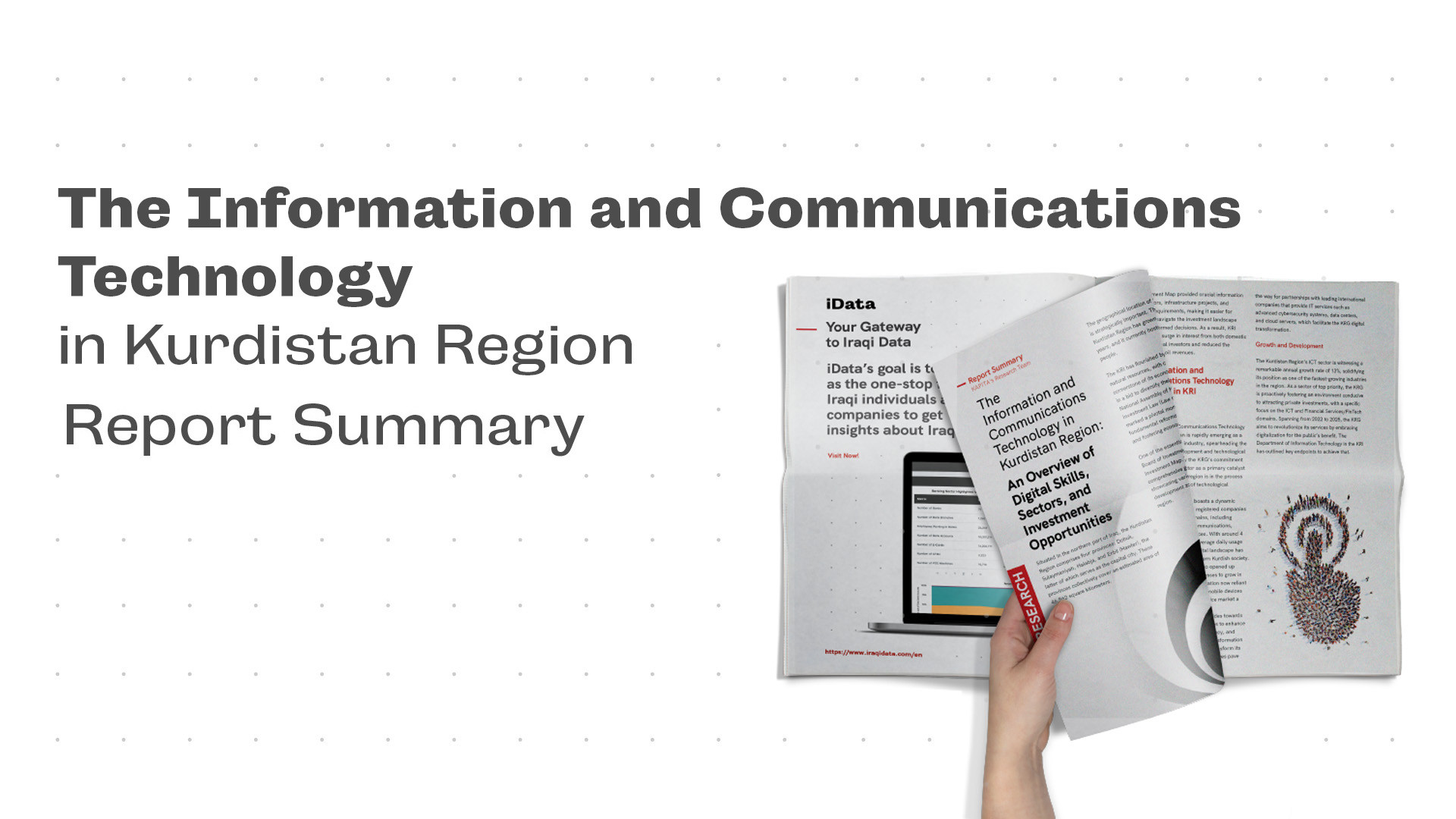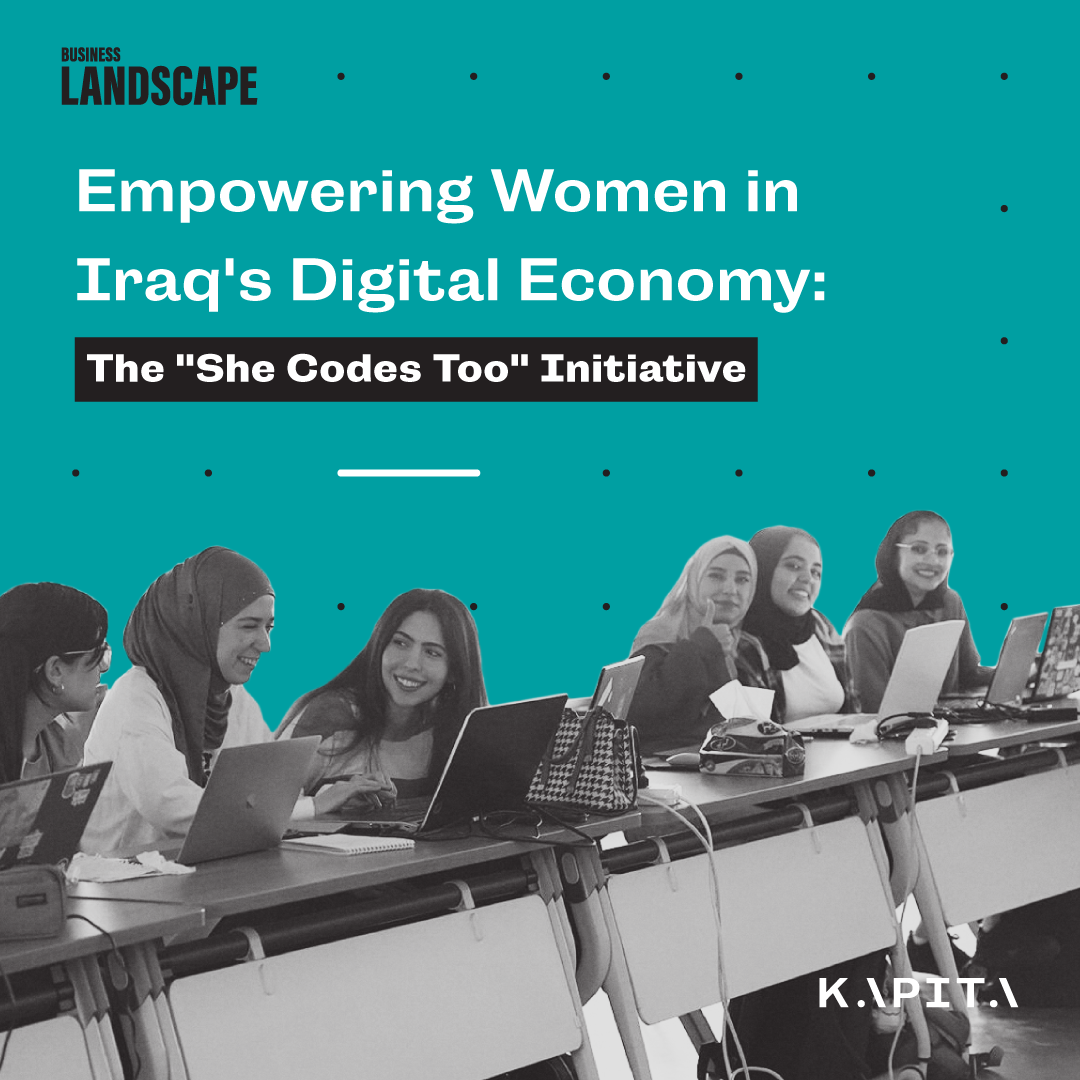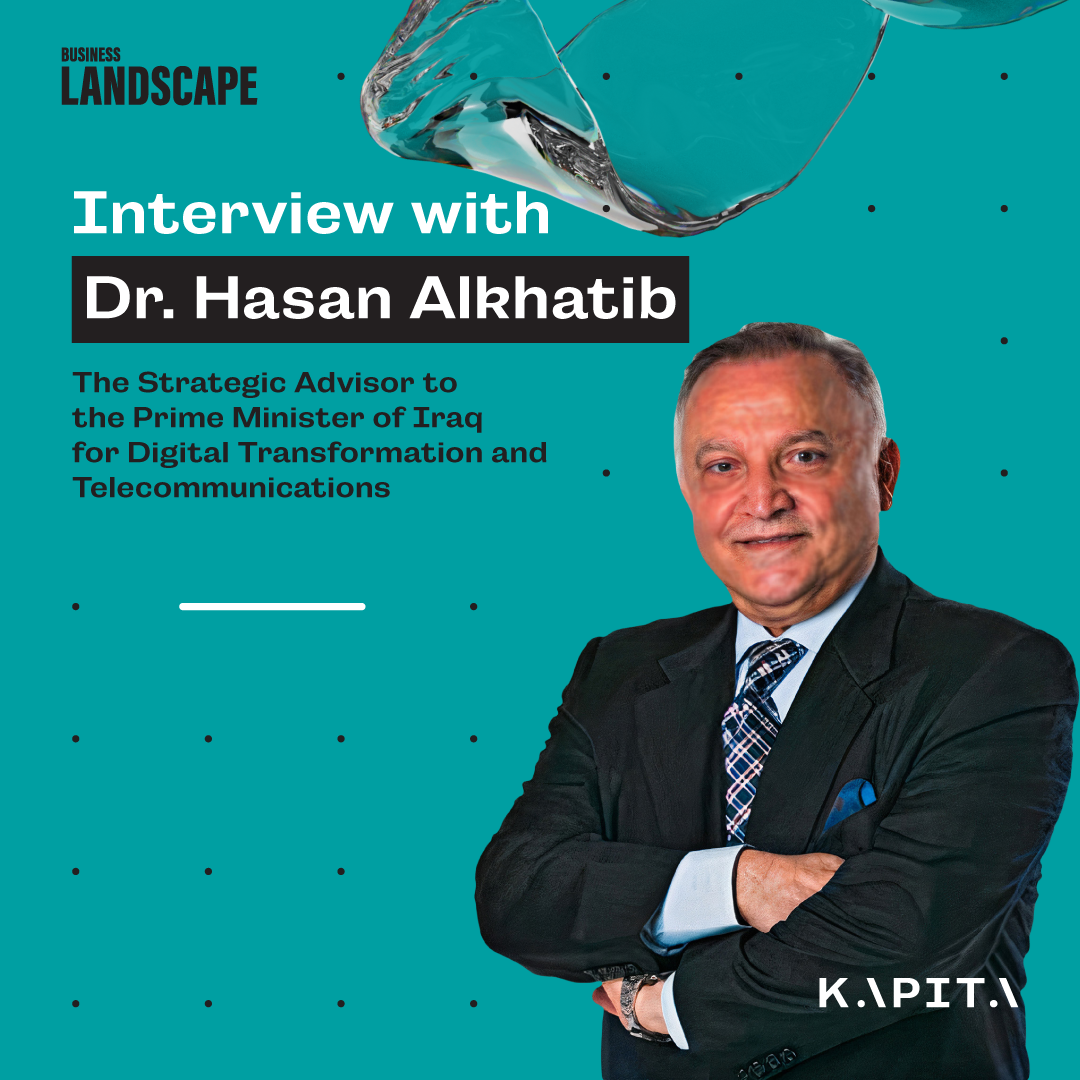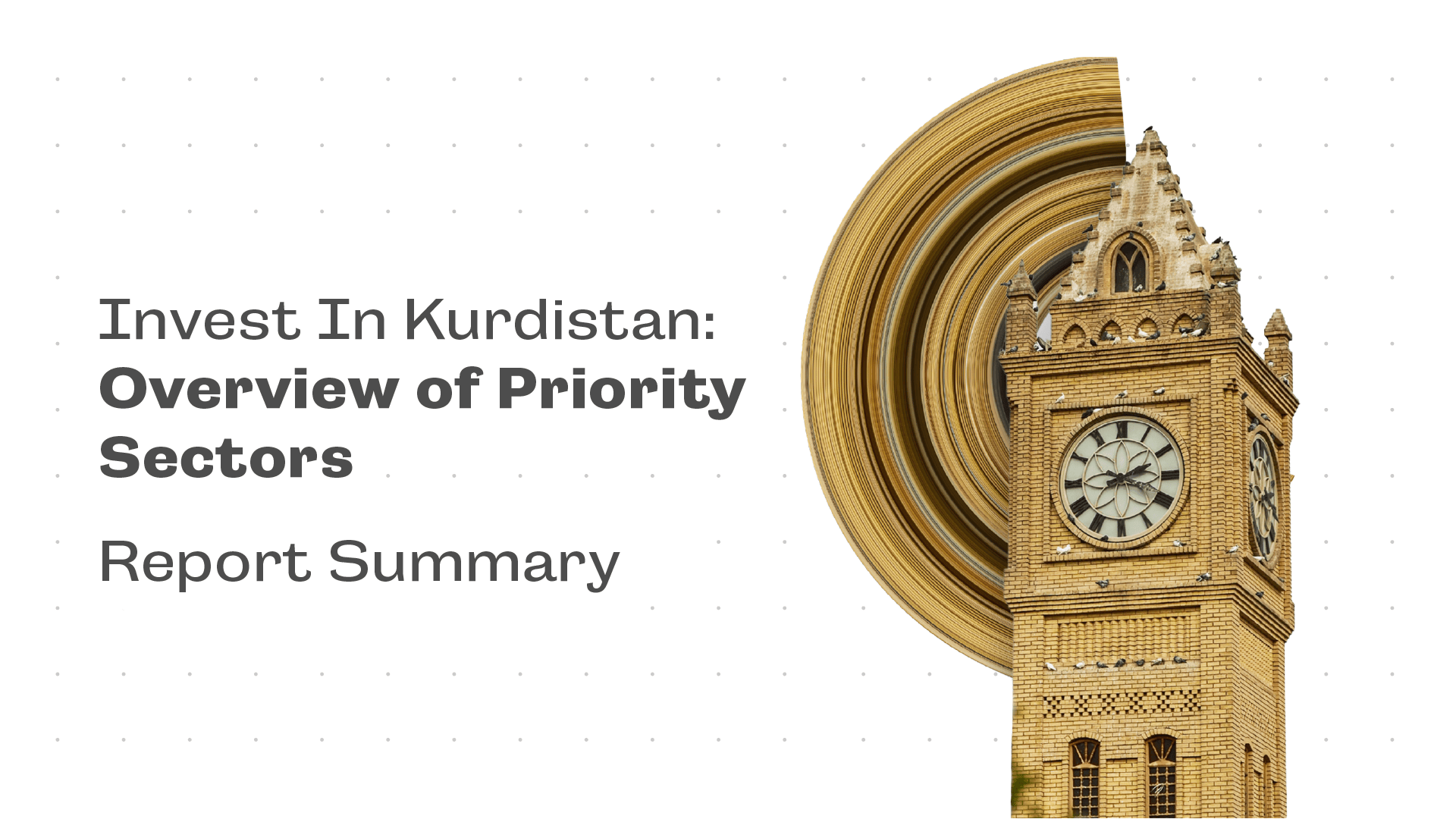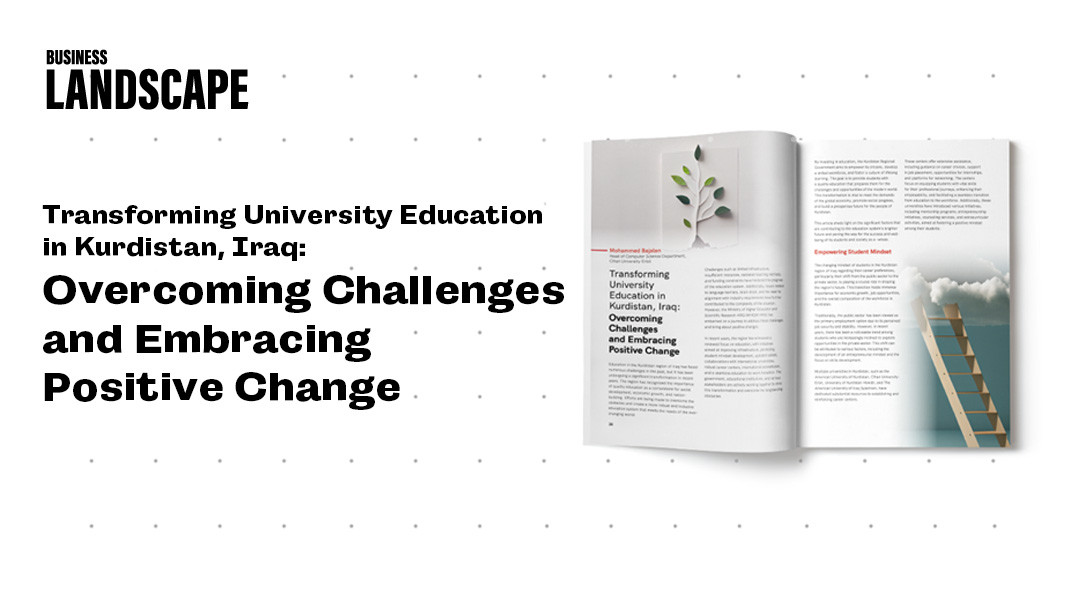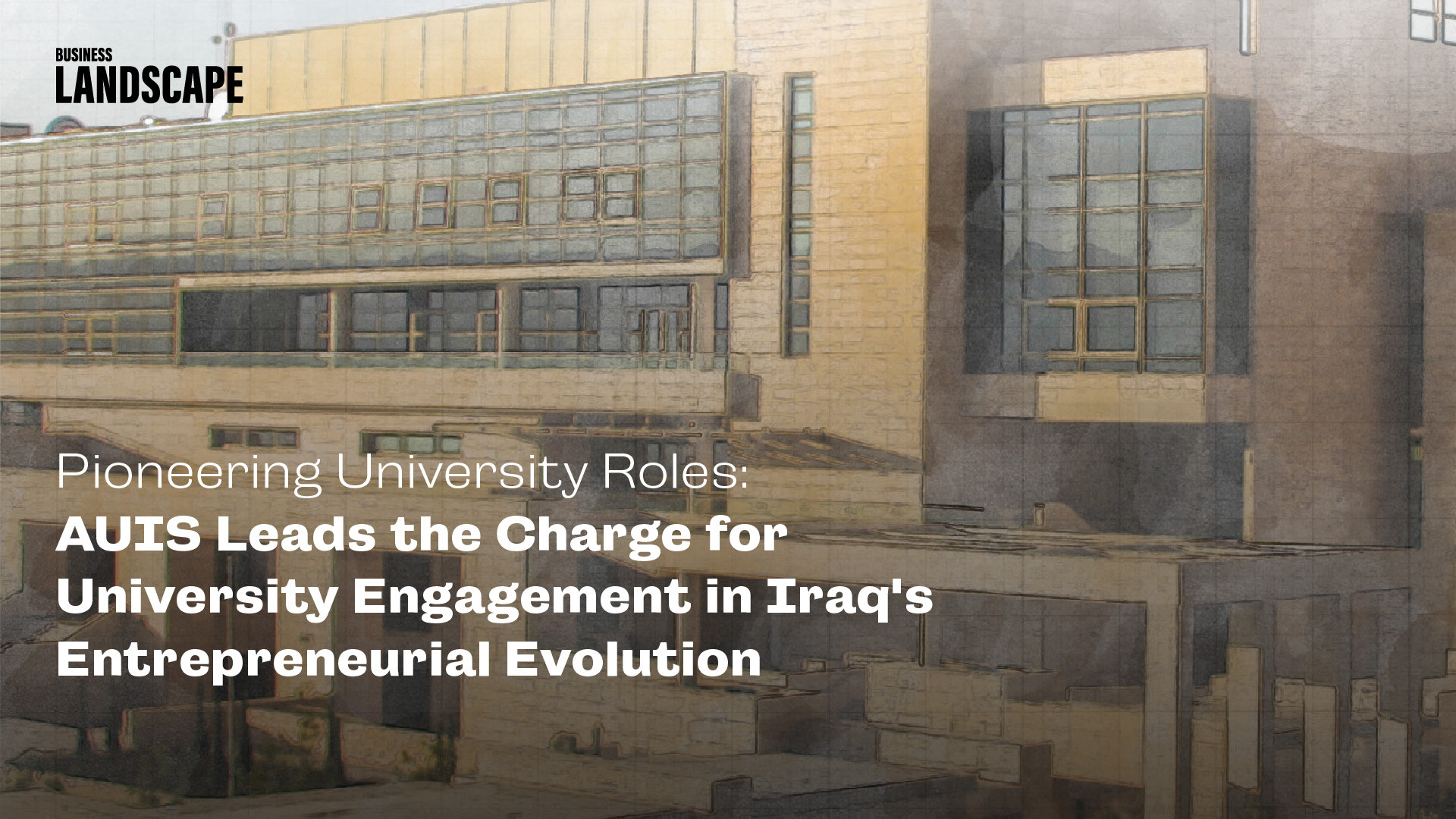The Information and Communications Technology in Kurdistan Region: An Overview of Digital Skills, Sectors, and Investment Opportunities
Report Summary
KAPITA’s Research Team
Situated in the northern part of Iraq, the Kurdistan Region comprises four provinces: Dohuk, Sulaymaniyah, Halabja, and Erbil (Hawler), the latter of which serves as the capital city. These provinces collectively cover an estimated area of 46,862 square kilometers. The geographical location of the Kurdistan Region is strategically important. The population of the Kurdistan Region has grown considerably over the years, and it currently hosts more than 6.2 million people.
The KRI has flourished by harnessing its rich natural resources, with crude oil serving as the cornerstone of its economic foundation. However, in a bid to diversify their revenue streams, the National Assembly of Kurdistan enacted the Investment Law (Law no. 4) in 2006. This legislation marked a pivotal moment as it paved the way for fundamental reforms aimed at attracting investment and fostering economic growth.
One of the essential tools employed by the KRG’s Board of Investment (BOI) was the Kurdistan Investment Map. This publication served as a comprehensive guide for potential investors, showcasing various investment projects, development zones, and available resources in the region. The Investment Map provided crucial information on key sectors, infrastructure projects, and regulatory requirements, making it easier for investors to navigate the investment landscape and make informed decisions. As a result, KRI experienced a surge in interest from both domestic and international investors and reduced the overreliance on oil revenues.
The Information and Communications Technology (ICT) Sector in KRI
Sector Overview
The Information and Communications Technology (ICT) sector in Kurdistan is rapidly emerging as a dynamic and promising industry, spearheading the region's economic development and technological advancement. Backed by the KRG’s commitment to supporting the ICT sector as a primary catalyst for economic growth, the region is in the process of transforming into a hub of technological entrepreneurship.
The ICT sector in Kurdistan boasts a dynamic ecosystem of more than 500 registered companies spanning a wide array of domains, including software development, telecommunications, e-commerce, and digital services. With around 4 million internet users and an average daily usage of 4.7 hours per capita, the digital landscape has become an integral part of modern Kurdish society. This surge in connectivity has also opened up plenty of opportunities for businesses to grow in the region. With 85% of the population now reliant on smartphones, the demand for mobile devices has soared, making the mobile device market a lucrative focal point.
Furthermore, the KRG has taken strides towards implementing e-government initiatives to enhance public services, administrative efficiency, and transparency. Through its Digital Transformation Strategy, the KRG aims to digitally transform its services by the year 2025. Such initiatives pave the way for partnerships with leading international companies that provide IT services such as advanced cybersecurity systems, data centers, and cloud servers, which facilitate the KRG digital transformation.
Growth and Development
The Kurdistan Region’s ICT sector is witnessing a remarkable annual growth rate of 13%, solidifying its position as one of the fastest-growing industries in the region. As a sector of top priority, the KRG is proactively fostering an environment conducive to attracting private investments, with a specific focus on the ICT and Financial Services/FinTech domains. Spanning from 2022 to 2025, the KRG aims to revolutionize its services by embracing digitalization for the public's benefit. The Department of Information Technology in the KRI has outlined key endpoints to achieve that.
Residents of the Kurdistan Region will experience several advantages through enhanced and efficient services characterized by speed, connectivity, and tailor-made solutions to cater to their individual needs. Notably, they will enjoy the convenience of engaging with government services effortlessly, regardless of their location or device, with a wide range of services readily available.
Kurdistan Region aims to significantly enhance the overall experience for businesses and investors through digitizing and simplifying start-up procedures, registration, and taxation processes. These essential improvements are expected to empower enterprises to seize opportunities and facilitate the expansion of their operations.
Industry, nonprofit organizations, and academia will forge valuable collaborations to jointly shape policies, implement best practices, and drive innovation for their collective advancement. These partnerships will be fortified by access to carefully curated and secure socio-economic datasets, ensuring a foundation of reliable information.
Governmental processes can be significantly streamlined by optimizing the digital ecosystem through seamlessly interconnected and streamlined platforms and services, including Government Cloud Infrastructure, data centers, and intergovernmental networks. This, in turn, empowers the KRG to make well-informed and evidence-based policy decisions and improve areas like health service waiting times and educational attainment.
Digital Skills and Human Capital
Computer science, software development, and engineering have witnessed a notable rise in interest and participation among the local populace. The region has become a fertile ground for nurturing tech-savvy individuals, with an impressive annual output of 20,500 ICT graduates, reflecting the growing significance of this industry in Kurdistan. The KRG’s BOI aims to highlight the human capital that exists within the region, understanding that a highly skilled and motivated workforce is a critical factor in attracting foreign investments or companies seeking to expand or establish operations in the region. Some of the advantages of the ICT sector workforce in the Kurdistan Region include:
Young and Tech-Savvy Population: Kurdistan has a relatively young population, with a large percentage of its inhabitants being tech-savvy youths. This demographic trend ensures a steady influx of digitally literate individuals who can readily adapt to emerging technologies and ICT advancements.
Cost-Effectiveness: Compared to some other regions with established ICT sectors, Kurdistan offers competitive labor costs with an average monthly salary of 400-800 USD, making it an attractive destination for outsourcing and offshoring ICT projects.
Cultural Diversity and Inclusivity: Kurdistan's cultural diversity and openness to embrace new ideas promote creativity and innovative thinking within the ICT sector. Different perspectives and backgrounds often lead to unique solutions to various technological challenges.
ICT Sector Structure in the Kurdistan Region
Telecommunications
With increasing mobile penetration and access to internet services, Kurdistan has leapfrogged into the digital era, bridging the digital divide and bringing forth new opportunities for businesses and individuals. As the demand for high-speed internet, mobile connectivity, and data services continues to surge, telecom providers in the region have been quick to adapt, offering innovative solutions to meet the evolving needs of their customers.
At present, the telecommunications sector in the Kurdistan Region boasts a flourishing landscape characterized by the presence of numerous international, national, and local companies operating within its mobile and broadband divisions.
Mobile Networks

Korek Telecom: has been operating in Iraq since the year 2000, making it one of the oldest Telecom companies in the country. On August 17th, 2007, the company secured a nationwide mobile license, allowing it to extend its services across the entire country, providing coverage to a vast population of over 32 million inhabitants.
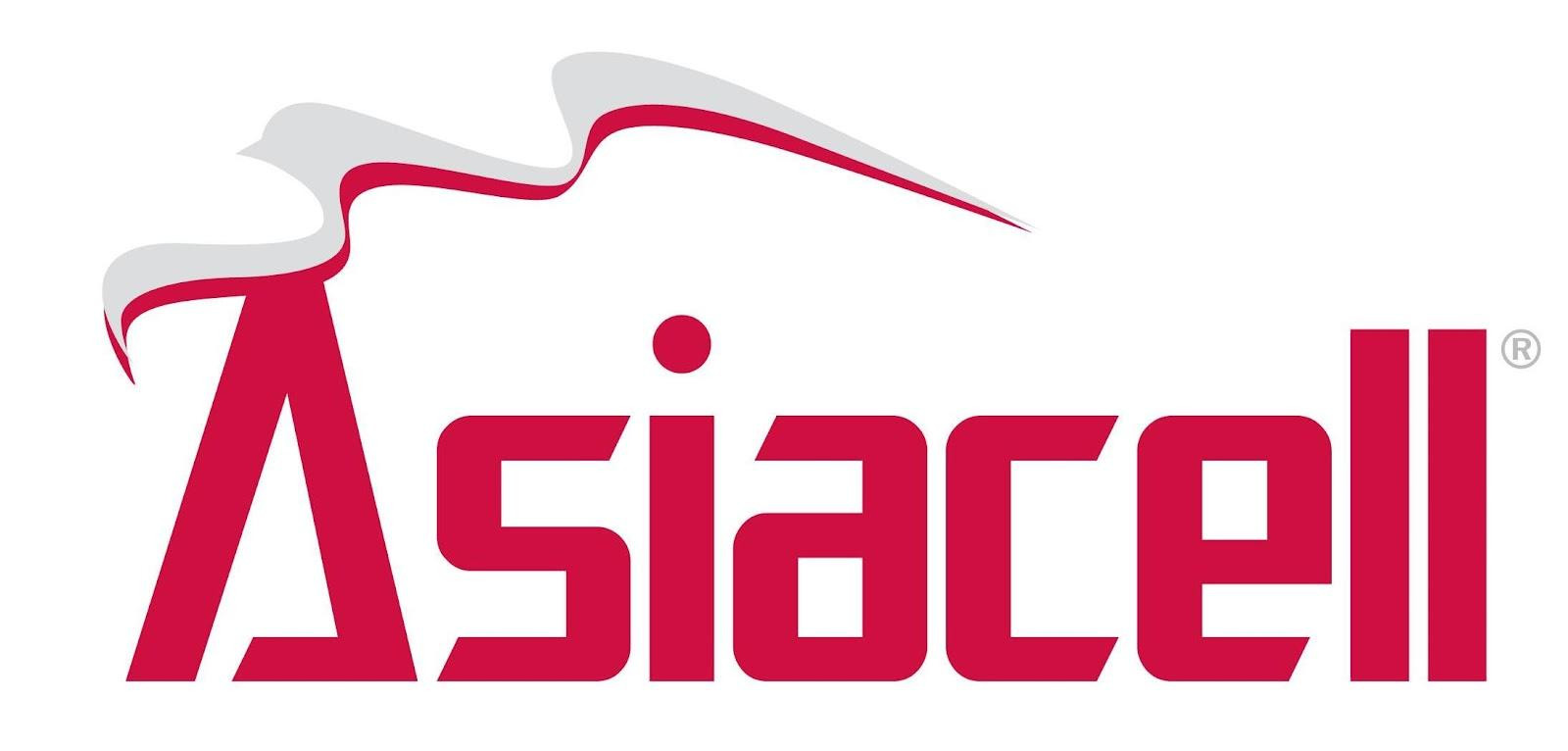
Asiacell: Established in 1999, Asiacell is a foremost provider of premium mobile telecommunications and data services in Iraq, boasting 17 million customers. It holds the distinction of being Iraq's pioneer mobile telecommunications provider, extending services across all 19 governorates, including the KRI.
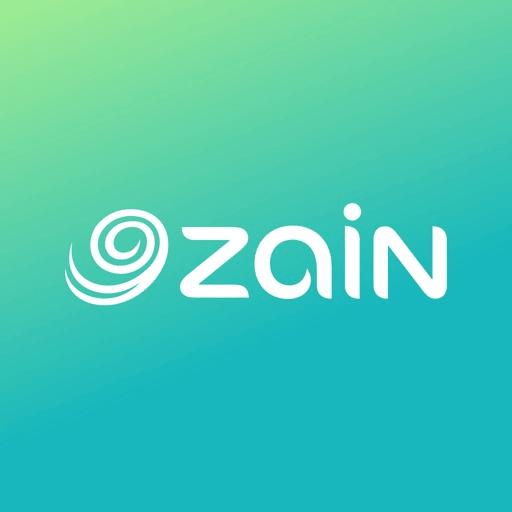
Zain Iraq: is a prominent telecommunications company in Iraq and a key part of the Zain Group. As a pioneer in bringing fourth-generation technology to Iraq, Zain Iraq ensures extensive network coverage and state-of-the-art infrastructure, benefiting customers with reliable and high-quality fourth-generation services throughout the country.
Internet Services
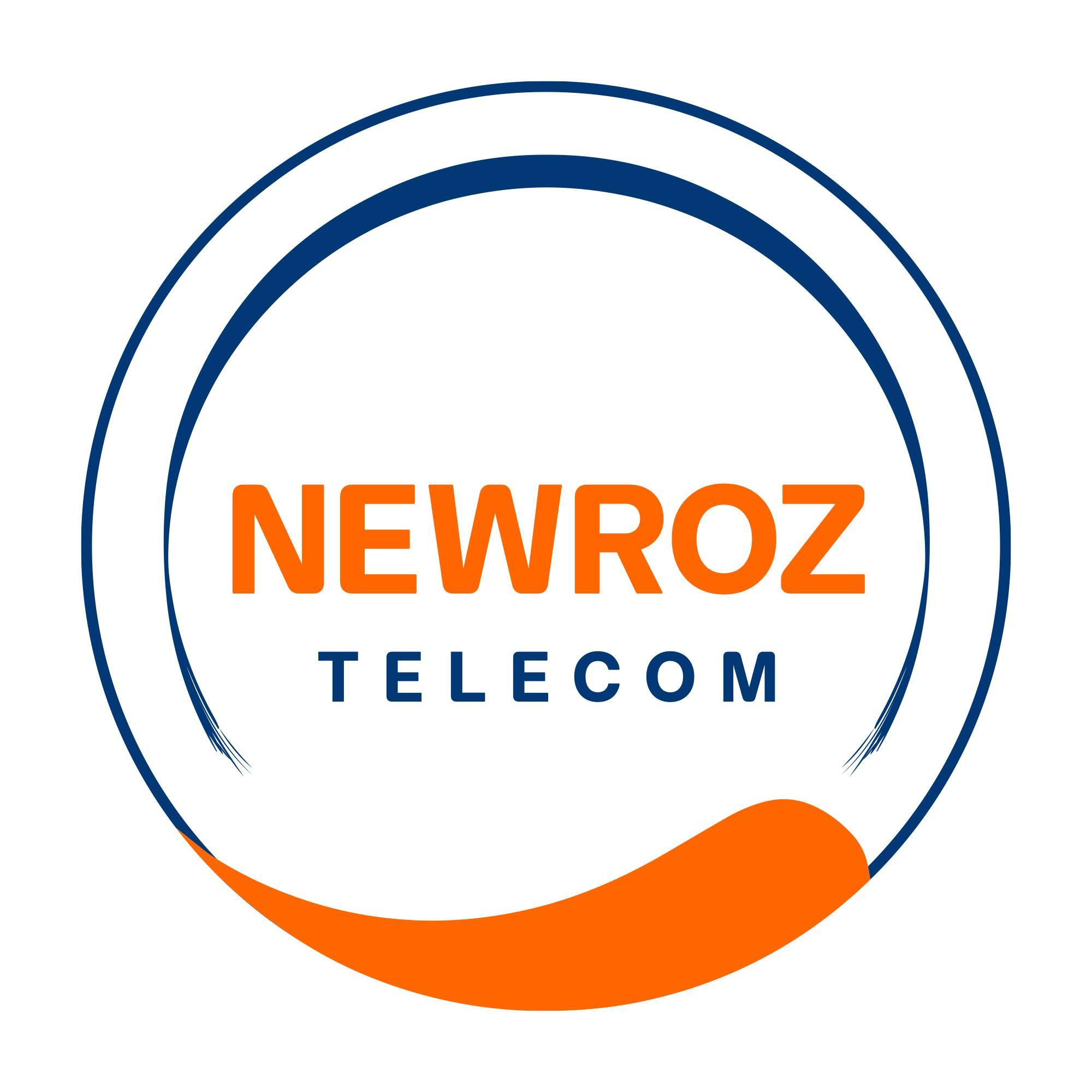
Newroz Telecom: Established in 2007, Newroz Telecom is a private telecommunications company in the Kurdistan Region. With an extensive presence in 100 districts and areas, as well as over 1000 employees and technical staff, the company has solidified its position as a top-tier provider of diverse telecom services, catering to both voice and data needs.

iQ: Sulaymaniyah-based iQ is a pioneering Iraqi company established in 2005. It provides high-speed internet services to Iraq while offering a range of IT solutions, including data centers, web hosting, and cloud storage. With a focus on technological advancement and customer satisfaction, iQ aims to enhance the nation's digital landscape for businesses and individuals.
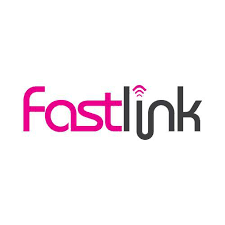
Fastlink: In June 2013, Fastlink made a groundbreaking entry into the Kurdistan telecom and data market, becoming Iraq's pioneering 4G LTE operator. Fastlink has a workforce of over 1200 local employees and it indirectly generates more than 3000 jobs. As of 2023, Fastlink is serving 1 million active customers, solidifying its position as a leading data provider in the Kurdistan Region.

O3 Telecom: is a telecommunications company in the KRI. With an impressive track record and substantial expertise in the telecom market, O3 Telecom caters to over 100,000 users in Duhok and Erbil through its FTTH (Fiber to the home) service. In addition to offering internet telephony through VOIP services, the company provides IPTV and VOD options, allowing customers to seamlessly browse the internet, enjoy television content, and access on-demand video via the MyTV device.

Goran Net
Headquartered in Sulaymaniyah, Seven Net Layers (Goran Net) was founded in 2017 as a leading internet service provider. Specializing in fourth-generation (4G) connectivity, Seven Net Layers offers a wide range of convenient options, including MiFi, SIM Card, and CPE, to cater to the diverse needs of the Kurdish market.
An array of local companies has also emerged, contributing to the growing online infrastructure in the KRI. Among them, providers like Fancy Net, Train Net, Tishknet, and City Net have garnered a considerable user base through their commitment to delivering reliable and high-speed internet services.
Media and Broadcasting
From the introduction of digital broadcasting to the rise of online streaming platforms and social media, technological advancements have revolutionized the media and broadcast sector in Kurdistan. With a vast network of more than 120 TV channels distributed throughout the Kurdistan Region, the media and broadcast sector offer an exceptionally promising investment landscape for visionary investors. The increasing appetite for top-notch, original content has given rise to a receptive and enthusiastic audience. As a result, investors are presented with a unique and opportune moment to capitalize on this growing demand and shape the future of the region's media industry.
Numerous prominent television networks cater to the diverse interests and preferences of audiences spanning Kurdistan and the wider Kurdish-speaking territories in neighboring countries. These channels offer a rich array of content encompassing news, politics, sports, drama, music, and educational programs. Noteworthy influential broadcasters are: Gali Kurdistan provides diverse content, including general programming, news, and sports. Kurdistan 24 focuses on general and news programming. KNN is dedicated to news content. Kurdistan TV offers a mix of general, news, and entertainment content. NRT provides general, news, and entertainment programming. Rudaw TV specializes in news and documentaries. Lastly, Zagros TV delivers general and news. All these channels are accessible through TV, online, apps, and through radio and magazines for some.
Financial Services and FinTech
In recent years, the KRI has been actively working on enhancing its financial services, boasting a total of 28 banks currently operating within its boundaries. This growth trajectory in the region's financial sector is promising, indicating a positive outlook for its continued advancement.
However, despite this rapid growth, the financial sector still grapples with low utilization of bank accounts and limited adoption of digital banking and card-based transactions. Access to finance for local entrepreneurs remains overly restrictive, burdened by stringent collateral requirements, and non-banking financial services like insurance, mortgage lending, leasing, and wealth management are scarcely available.
Addressing the need for financial inclusion and accelerated financial services growth, the regional government has undertaken progressive measures. A significant stride involves mandating that all government employees and contractors receive their payments digitally, directly to their bank accounts. This move is anticipated to stimulate the use of digital payment services and promote formal banking practices across the region.
Capitalizing on the abundant and promising opportunities presented within the dynamic landscape of the financial services sector, several companies have emerged as dominant players, shaping the industry's trajectory with their innovative approaches. Nationwide companies such as AsiaPay and Zain Cash offer mobile wallets, Fast Pay offers digital wallets, and the Trade Bank of Iraq and First Bank of Iraq provide online banking services. In the Kurdistan Region of Iraq (KRI), Nass Pay, ZoodPay, and Pelepare offer digital wallets, Quick Pay provides E-vouchers, RT Bank offers online banking, and Kurdcoin deals with digital assets.
KRG Digital Services
Data Centers:
The government has established and is improving its data centers to ensure secure, reliable, and efficient storage of vast amounts of information. These facilities serve as the centralized hub for storing, processing and managing various types of data generated by government agencies and departments. Data centers enable seamless access to information, enhance data sharing among relevant entities, and facilitate real-time decision-making for policymakers and administrators.
Financial Information Management System (KFMS):
The KFMS is an initiative aimed at optimizing financial processes and promoting fiscal transparency. KFMS streamlines the budgeting, accounting, and reporting functions of the government, ensuring accurate and timely financial data. This system facilitates better financial planning, expenditure tracking, and budget allocation, leading to more efficient utilization of resources and improved fiscal accountability.
Population Information System (PIS):
The Population Information System is a comprehensive database that houses essential demographic data of the Kurdish population. This system serves as a valuable resource for policymakers, enabling them to make informed decisions regarding public services, infrastructure development, and social welfare programs.
Digital Driver’s License and Vehicle Registration System:
Through this system, citizens can conveniently apply for and renew their licenses online, eliminating the need for physical visits to government offices. Likewise, vehicle owners can access digital services for vehicle registration, transfer of ownership, and other related transactions. This system ensures efficiency, reduces wait times, and enhances road safety by maintaining up-to-date records of licensed drivers and registered vehicles.
Human Resources Management and Payroll System:
The Human Resources Management (HRMS) and Payroll System (PIMS) represent a significant step in the efficient management of KRG’s employees. HRMS streamlines recruitment, employee onboarding, performance evaluations, and training programs. PIMS, on the other hand, automates the payroll process, ensuring accurate and timely payment of salaries and benefits.
Entry Control System (ECS):
As a critical component of the KRG’s efforts to strengthen border security and immigration management, the ECS utilizes biometric identification and secure documentation to monitor and control the entry and exit of individuals at border checkpoints. The ECS's primary objective is to bolster security measures while expediting the passage of authorized travelers, thereby fostering regional stability and ensuring safety.
Citizen Complaint System (CCS):
To provide an accessible channel for individuals to voice their concerns regarding public services, the CCS enables citizens to register complaints online and track their progress in real-time. By actively addressing citizen feedback, the KRG demonstrates its commitment to accountability and responsiveness, thereby promoting trust and confidence in the government’s ability to address public needs.
Business Entities Administration System:
This digital platform simplifies the processes of business registration, licensing, and regulatory compliance, leading to faster and more transparent interactions between businesses and government authorities. As a result, the Business Entities Administration System (BEAS) encourages entrepreneurship, attracts investments, and drives economic growth in the KRI.
Sector Investment Motives and Opportunities
Reasons to Invest
The KRI has recognized the immense potential of the ICT sector and has made it a top priority, leading to the anticipation of unprecedented growth. The KRG demonstrates its strong commitment to fostering an environment that encourages both local and international investments in the sector by implementing a comprehensive Digital Transformation Strategy.
The KRG takes proactive measures to stimulate the growth of the ICT sector by implementing policies that foster an investment-friendly atmosphere, supporting its development and expansion. In addition to the region’s abundant pool of talented and well-educated professionals in engineering, computer science, and IT fields, the ICT infrastructure in KRI is continuously advancing, driven by significant investments aimed at improving high-speed internet connectivity, establishing data centers, and creating technology parks. Finally, the KRG extends attractive incentives to investors in the ICT sector, such as tax breaks, land allocation, and exemption from customs duties.
